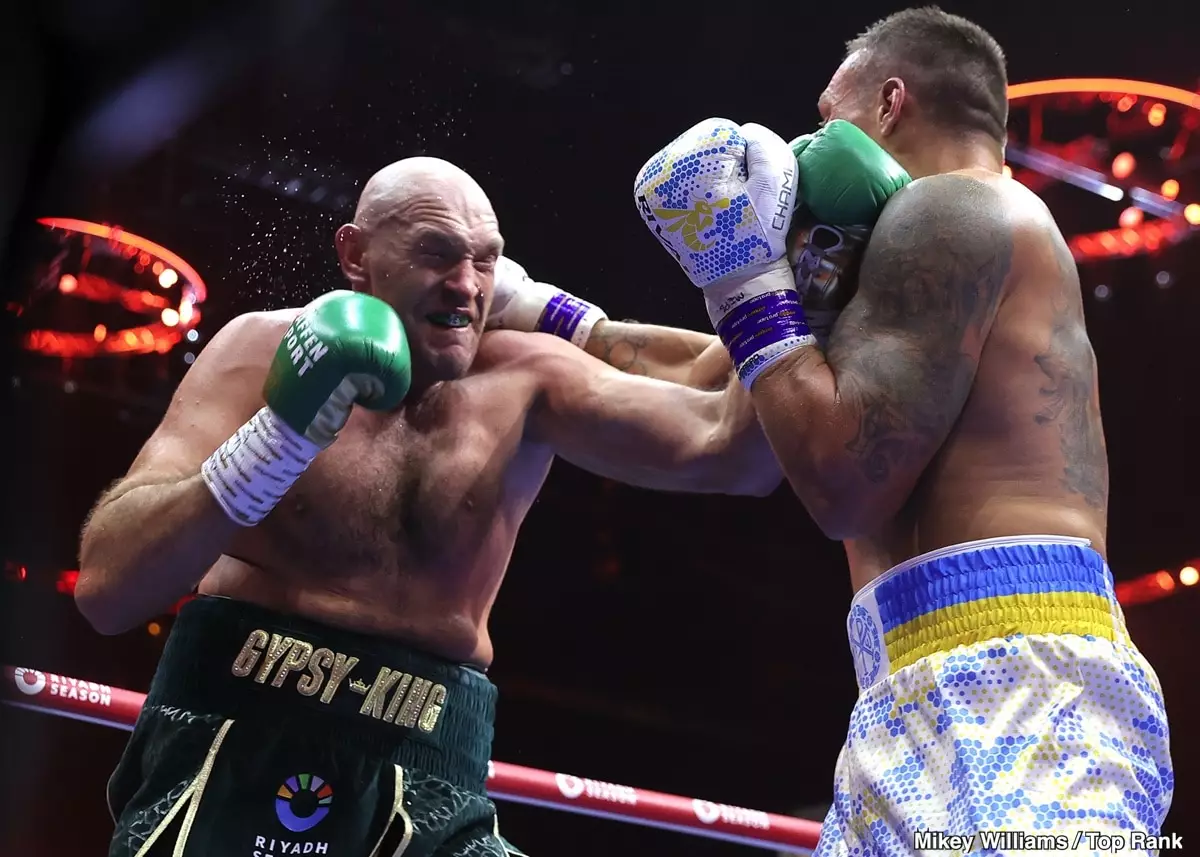Tyson Fury, the former WBC heavyweight champion, has made headlines once again as he gears up for a highly anticipated rematch against Oleksandr Usyk on December 21st. This time, however, it is not just his boxing prowess that is under scrutiny but his unabashed focus on financial gain. In recent statements, Fury has openly discussed his primary goal of accumulating wealth before his career comes to a close, revealing a mindset that some critics may perceive as a mask for underlying insecurities regarding his performance against Usyk.
With a professional record boasting 34 wins, 1 loss, and 1 draw, Fury’s reputation as a formidable heavyweight is well-established. Yet, as he prepares for this rematch, the specter of potential defeat looms heavily. The financial rhetoric seems to serve as a psychological safety net, cushioning the impact of a possible loss on his legacy. This approach raises eyebrows; is Fury genuinely pursuing financial success, or is he attempting to preemptively absolve himself of the burdens of defeat?
While fighters are often praised for their competitive spirits, Fury’s statements reflect a stark contrast. He proudly proclaimed in an interview that he has amassed a staggering $200 million and aims to continue monetizing his career until he can no longer physically compete. Such transparency regarding his monetary desires presents an interesting angle on the sport—one that juxtaposes athletic ambition with commercial shrewdness. However, it also casts doubt on the integrity of his commitment to boxing.
Fury’s assertion, “I do it for the dough,” could be interpreted as both refreshing honesty and an unsettling confession. While some may respect his candidness, others view it as an alarming indication that his priorities may have shifted from the joy of competition to the allure of financial security. This dichotomy emphasizes the inherent conflict that many modern athletes face: the balance between sport and business.
As the rematch draws closer, the stakes elevate beyond monetary concerns. Against Usyk—a champion with an impeccable record of 22 wins and no losses—Fury’s resilience will be tested. The boxing community is buzzing with predictions, and many see Fury as the underdog, facing significant challenges in securing a victory. Amidst this backdrop, his discussions about financial gain can come off as an attempt to divert attention from his possible downfall in the ring.
In his insistence on evaluating opportunities based on financial benefit, Fury risks alienating a fanbase that celebrates the storied history of athletic rivalry and valor. His willingness to negotiate everything from promotional deals to fight agreements based solely on monetary value might detract from the legacy he is building or, conversely, dismantling.
In a sport often synonymous with honor, discipline, and raw talent, Tyson Fury’s fixation on financial gain presents a complex narrative. While pursuing wealth is not inherently negative, the alignment of his motivations with the imminent risk of defeat raises questions about the authenticity of his journey as a boxer. As he prepares for this defining rematch, fans and analysts alike will undoubtedly scrutinize not only the outcome of the bout but also the broader implications of a fighter whose priorities may extend beyond the squared circle. Will victory matter more than the dollars, or will Fury’s bank account become the singular measure of his success? Only time will reveal the true cost of his aspirations.


Leave a Reply